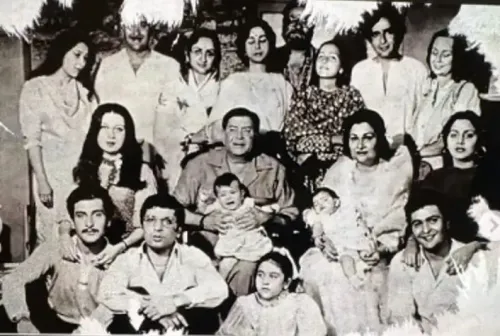Is Pakistani Actress Mahira Khan's Poster on Mumbai's Public Toilet a Statement After Pahalgam Attack?

Synopsis
Key Takeaways
- This act by Faizaan Ansari is a protest against the Pahalgam attack.
- Mahira Khan's popularity is being used in a controversial manner.
- Public sentiment can manifest through unexpected means.
- The situation reflects the ongoing tensions between India and Pakistan.
- Government responses are being closely monitored in light of recent events.
Mumbai, May 3 (NationPress) In response to the shocking Pahalgam attack, activist Faizaan Ansari took a controversial step by placing posters of acclaimed Pakistani actress Mahira Khan on the walls of Municipal public toilets in Mumbai.
When questioned about his actions, Faizaan stated to IANS, "I have previously mentioned that Pakistan bears full responsibility for the Pahalgam attack. I've launched a campaign featuring images of the Pakistani superstar Mahira Khan on public toilet walls in Mumbai. This serves to convey that Pakistan's contributions are limited to maintaining toilets."
He emphasized that this action serves as a warning to Pakistan regarding potential future consequences. "This image is visible to the entire world. I want Pakistan to recognize that if they raise their voice against India again, we will take decisive action. Currently, we've halted your water supply; in the future, your food supply may also be at risk," Faizaan expressed.
The activist mentioned that posters of other Pakistani celebrities, including Hania Aamir and Fawad Khan, will also be displayed in Mumbai's public restrooms.
Previously, the social media accounts of prominent Pakistani artists such as Mahira Khan, Hania Aamir, Fawad Khan, Atif Aslam, and Ali Sethi from 'Pasoori' fame were banned in India.
The notification on their Instagram profiles reads, "Account not available in India. This is due to compliance with a legal request to restrict this content."
Following the terror attack in the Baisaran valley of Pahalgam, which resulted in the deaths of at least 26 tourists, tensions between India and Pakistan have intensified.
Meanwhile, Indian Prime Minister Narendra Modi has granted full authority to defense forces to determine the method, timing, and route of action against Pakistan in light of the Pahalgam attack.









